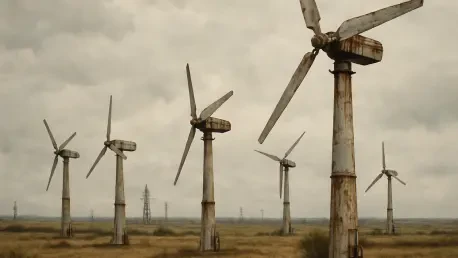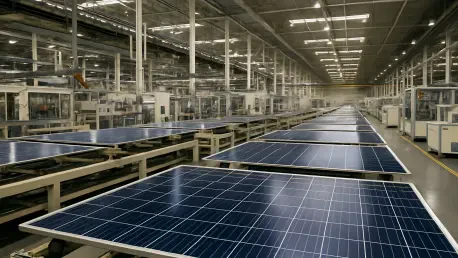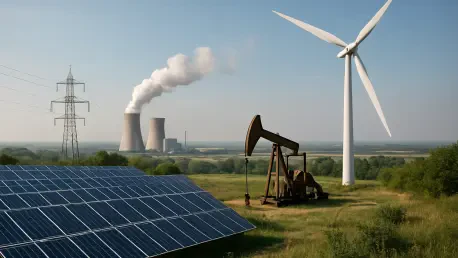
In a groundbreaking move to redefine renewable energy infrastructure, Tamil Nadu, a state in southern India, is embarking on an innovative journey to convert its aging wind power plants into hybrid wind-solar hubs, revitalizing outdated technology with modern solutions. This initiative, spearheaded

The United States stands at a pivotal moment in its energy transformation, with solar power emerging as a dominant force in the nation's push toward a greener future, yet facing significant hurdles from political opposition that could derail its momentum. Recent data from the U.S. Department of

I'm thrilled to sit down with Christopher Hailstone, a seasoned expert in energy management, renewable energy, and electricity delivery. With his deep knowledge of grid reliability and security, Christopher offers a unique perspective on the pressing challenges facing the energy sector today. In

In the heart of Georgia, a solar manufacturing giant faces an unexpected storm as assembly lines slow and workers grapple with uncertainty, highlighting the broader impact of U.S. import laws on local industries. Qcells, a South Korean company and subsidiary of Hanwha Solutions, operates two key

Diving into the complex world of energy storage and grid reliability, I’m thrilled to sit down with Christopher Hailstone, a seasoned expert in energy management and renewable energy integration. With years of experience in electricity delivery and a deep understanding of grid security, Christopher

In a world where millions still lack reliable electricity, the disparity in energy access remains a critical barrier to progress, especially in regions like Africa where power outages disrupt healthcare, education, and economic growth. Amid this challenge, one engineer stands out as a catalyst for